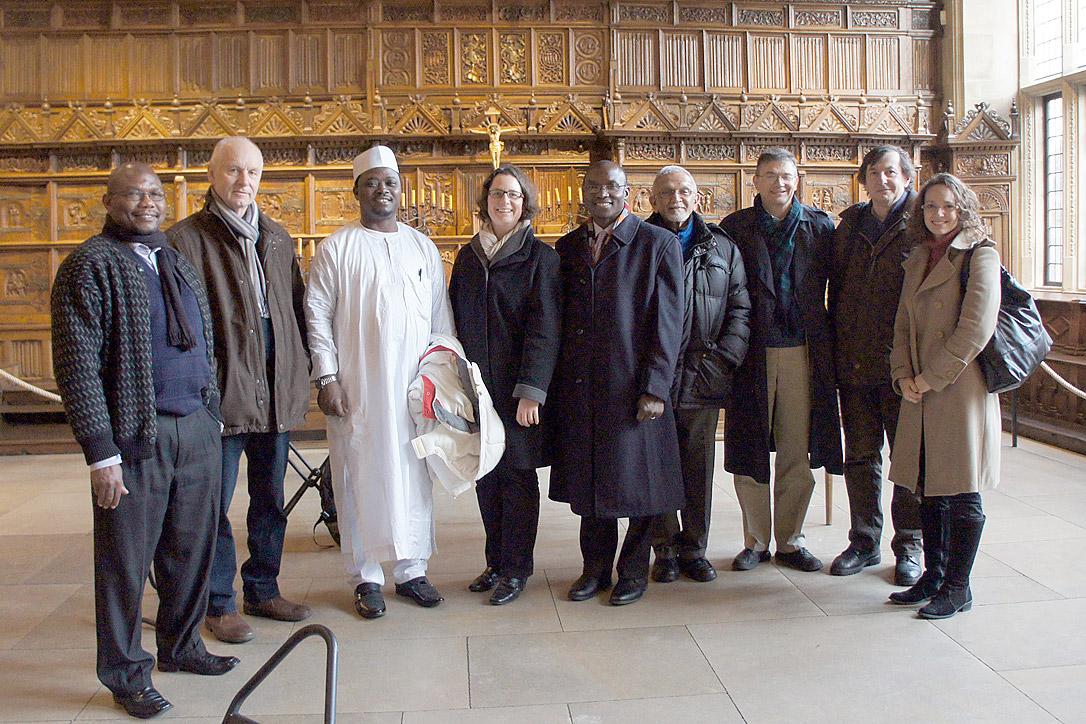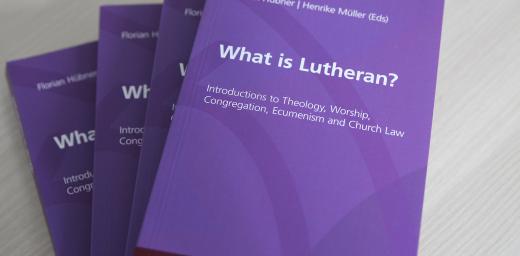New LWF publication: “Religious Plurality and the Public Space”

Christian and Muslim participants of the 2014 consultation in Germany, visiting the Hall of Peace in Münster, which commemorates the 1648 Treaty of Westphalia. Photo: Marion von Hagen
Christian and Muslims scholars reflect on the role faith in the public sphere
(LWI) - Religious Plurality and the Public Space is the title of a new publication jointly produced by The Lutheran World Federation (LWF) and the Center for Islamic Theology (ZIT).
The compilation of theological reflections from Christian and Muslim scholars examines the role of faith in the public sphere. Theologians and social scientists discuss distinctions and relations between religious communities and the state, and analyze anthropological and theological perceptions that influence the understanding of public space.
“In plural societies, the notion of public space is key when negotiating questions pertaining to justice and peace,” LWF’s Rev. Dr Simone Sinn and ZIT theologians Dr Dina El Omari and Prof. Mouhanad Khorchide note in the book’s introduction. They observe that the vision of good life, dignity and society’s well-being is both influenced by diverse social, cultural and life experience contexts and shaped by the different religious and non-religious value commitments.
However, the plurality of religious commitment and constructive engagement today is threatened by perspectives and religious interpretations that are fundamentalist, as well as politics that embody nationalistic and ethnic identity. In the publication, Christian and Muslim scholars from 12 different countries across the globe examine how religious communities understand and interpret plurality and how they relate with other communities and stakeholders in the public space.
Most of the essays were first presented at a January 2014 international consultation organized jointly by the LWF and the Münster (Germany)-based ZIT on the topic “Creating Public Space: The Role of Faith in the Public Sphere.”
The authors provide in-depth rationales for why and how Islam and Christianity can contribute to building a shared public space. They discuss how the interpretation of the Bible and Qur’an strongly influence the way in which communities engage in public space and how they deal with politics and power.
Reflections on contemporary realities in Brazil, Nigeria and Palestine address issues of domination and the complex relationship between religion and politics, and highlight the crucial role played by minority groups in plural societies.
Copies of Religious Plurality and the Public Space: Joint Christian-Muslim Theological Reflections, in the LWF Studies series can be ordered directly from the publisher or [email protected]





